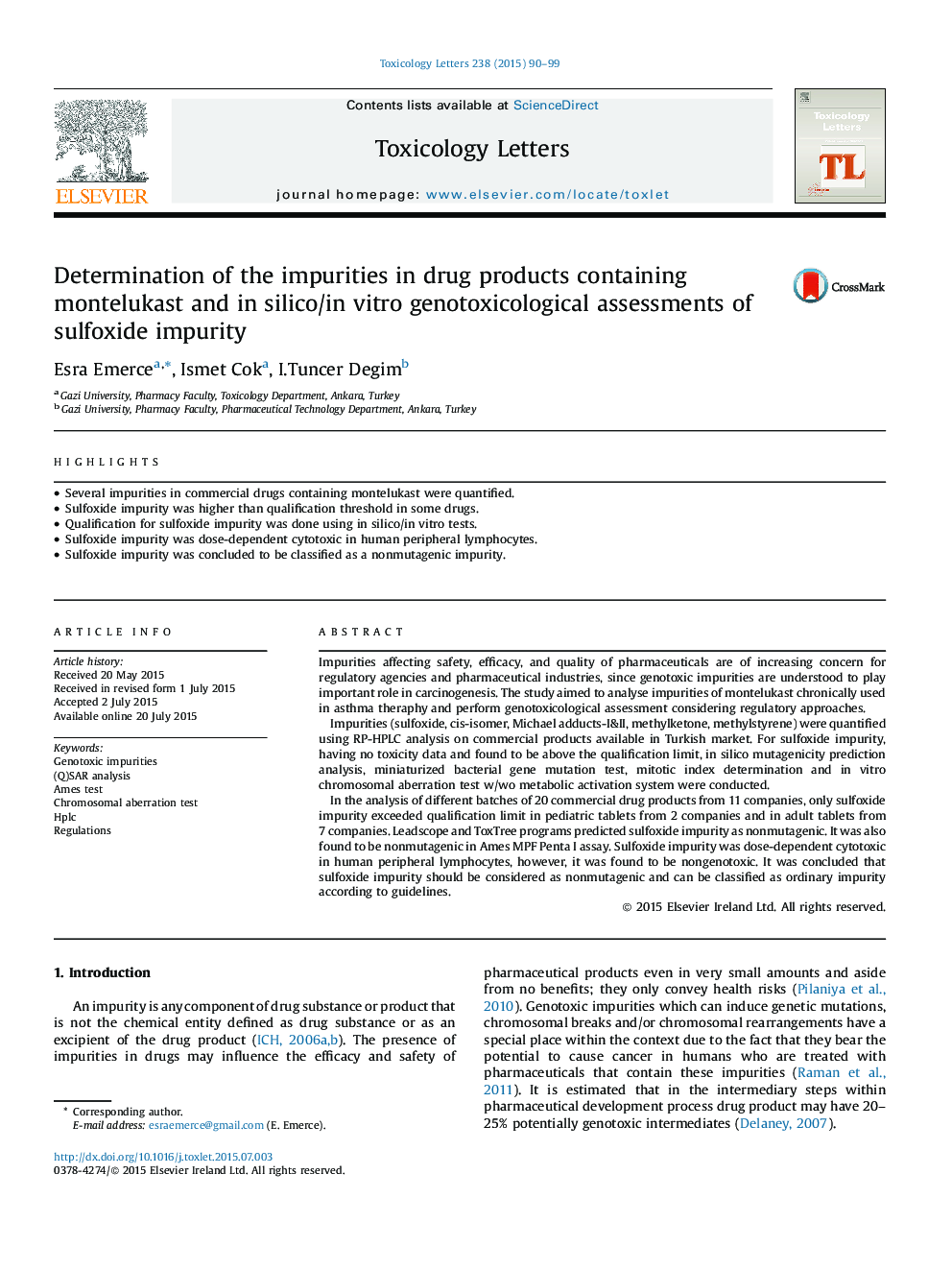| Article ID | Journal | Published Year | Pages | File Type |
|---|---|---|---|---|
| 5859894 | Toxicology Letters | 2015 | 10 Pages |
â¢Several impurities in commercial drugs containing montelukast were quantified.â¢Sulfoxide impurity was higher than qualification threshold in some drugs.â¢Qualification for sulfoxide impurity was done using in silico/in vitro tests.â¢Sulfoxide impurity was dose-dependent cytotoxic in human peripheral lymphocytes.â¢Sulfoxide impurity was concluded to be classified as a nonmutagenic impurity.
Impurities affecting safety, efficacy, and quality of pharmaceuticals are of increasing concern for regulatory agencies and pharmaceutical industries, since genotoxic impurities are understood to play important role in carcinogenesis. The study aimed to analyse impurities of montelukast chronically used in asthma theraphy and perform genotoxicological assessment considering regulatory approaches.Impurities (sulfoxide, cis-isomer, Michael adducts-I&II, methylketone, methylstyrene) were quantified using RP-HPLC analysis on commercial products available in Turkish market. For sulfoxide impurity, having no toxicity data and found to be above the qualification limit, in silico mutagenicity prediction analysis, miniaturized bacterial gene mutation test, mitotic index determination and in vitro chromosomal aberration test w/wo metabolic activation system were conducted.In the analysis of different batches of 20 commercial drug products from 11 companies, only sulfoxide impurity exceeded qualification limit in pediatric tablets from 2 companies and in adult tablets from 7 companies. Leadscope and ToxTree programs predicted sulfoxide impurity as nonmutagenic. It was also found to be nonmutagenic in Ames MPF Penta I assay. Sulfoxide impurity was dose-dependent cytotoxic in human peripheral lymphocytes, however, it was found to be nongenotoxic. It was concluded that sulfoxide impurity should be considered as nonmutagenic and can be classified as ordinary impurity according to guidelines.
